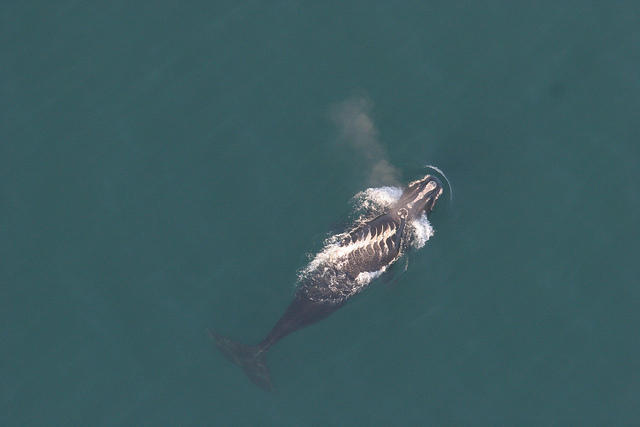
Caption
A right whale with scarring on its back is seen. A federal agency is proposing lowering Atlantic coastal speed limits for a smaller class of vessels as it aims to reduce the chances of endangered whales being sliced by boat propellers.
Credit: National Oceanic and Atmospheric Administration

